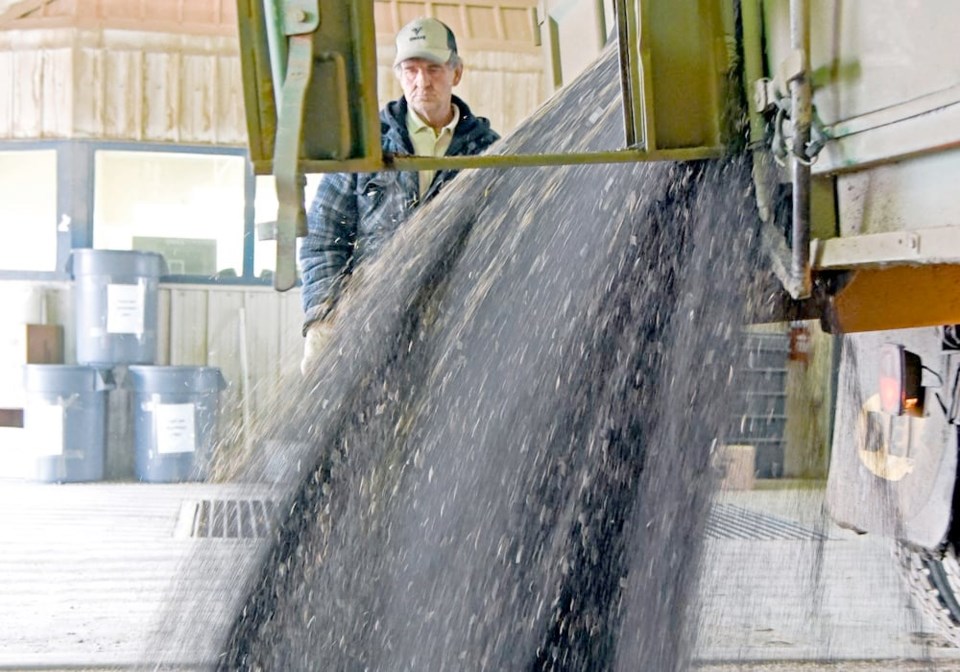SASKATOON — China’s canola crushers could face significant hardships if the country slaps tariffs on Canadian exports, say analysts.
MarketsFarm analyst Mike Jubinville wonders where the Asian giant will get the canola it needs to fuel its vast crush sector.
Australia is the world’s second largest exporter of the commodity behind Canada.
However, the Chinese market has been effectively closed to Australian canola since China started enforcing a zero-tolerance policy for blackleg disease in late 2020.
That issue could conceivably be resolved with “a stroke of a pen,” he said.
However, there is another phytosanitary issue that is equally problematic for Australia.
Canada can clean canola shipments to China’s stringent specifications, which call for no more than one percent foreign material.
“The Australians to date have not been able to (do that),” said Jubinville.
Australia has only exported 500 tonnes of canola to China since the start of 2024, Ole Houe, director of advisory services at IKON Commodities in Sydney, told Reuters.
If Australia can’t ship canola to China, it will continue to supply the European Union, Mexico and Japan, which raises the question about where Canada’s canola will end up.
Jubinville said it would be better if Australia’s canola goes to China, leaving a void in those other markets that can be backfilled by Canada.
“I’m hoping all we’re looking at is a shuffling of the matrix,” he said.
LeftField Commodity Research analyst Chuck Penner shares Jubinville’s bewilderment about why China keeps targeting a commodity it desperately needs.
“Canola has become a bit of a favourite whipping boy for China,” he said.
“I’m always a little surprised that they’re willing to cut off their nose to spite their face because there are limited other options for canola.”
China’s Commerce Ministry said Canada’s canola exports to China soared 170 per cent in 2023, amounting to US$3.47 billion. Canada accounted for 94 per cent of the country’s canola imports that year.
“Affected by the unfair competition of the Canadian side, China’s domestic rapeseed-related industries continued to suffer losses,” the ministry said in a statement.
Penner scoffs at the notion that China’s investigation is based on the year-to-year increase in exports.
He said exports jumped so much because Richardson International and Viterra were banned from exporting to China for almost half of 2022.
“The fact that volumes change is no evidence at all of subsidies or dumping.”
The analysts and the Canola Council of Canada firmly believe China is simply retaliating because of the new tariffs imposed by Canada on imports of Chinese electric vehicles, steel and aluminum.
China expressed outrage that Canada followed the lead of the United States and the European Union by imposing those tariffs.
“China strongly deplores and firmly opposes the discriminatory, unilateral, restrictive measures taken by Canada against imports from China despite the opposition and dissuasion of many parties,” the ministry said in a statement.
Jubinville believes China is sending a message to the U.S. and the EU by retaliating against Canadian canola.
“This comes down to the old Chinese proverb of kill the chicken, scare the monkey,” he said.
“Hurt the little guy to show the big guys what you’re capable of.”
However, in the process China may be hurting its own businesses.
“China needs the canola, so this can be somewhat problematic for them as well,” said Jubinville.
Ukraine is the world’s other major canola exporter. APK-Inform reports that this year’s production was 3.32 million tonnes as of Aug. 8, with 97 per cent of the acres harvested. That compares to a 4.7 million tonne crop last year.
Penner said that is not good news for the EU, which also had a short crop. Ukraine is one of the main suppliers of canola to the EU.
The European Commission is forecasting 18 million tonnes of EU rapeseed/canola production this year, a 9.5 per cent drop from the previous year.
Russia is poised to harvest a record five million tonnes of the oilseed, a 19 per cent increase over last year. The country recently replaced its export ban that expired Aug. 31, 2024, with a 30 per cent export duty that expires Aug. 31, 2026.
Contact [email protected]
Related
Sean Pratt




